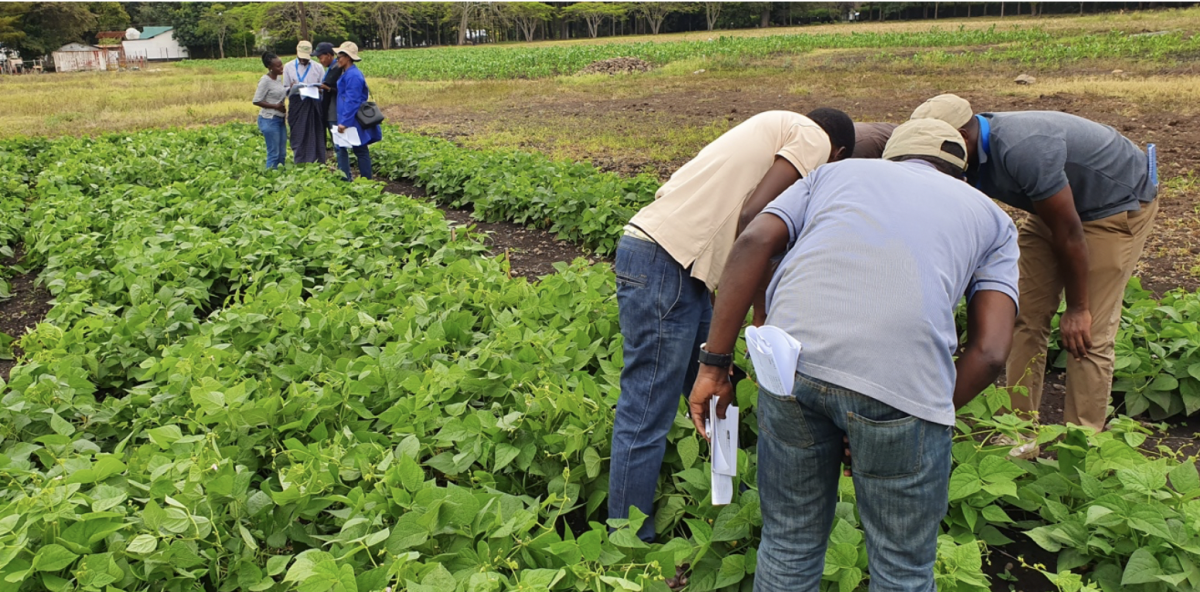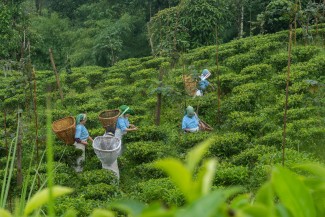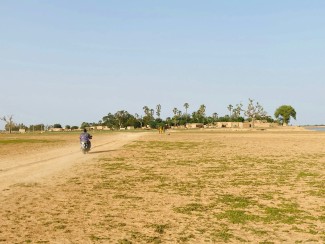OECD’s Seed Schemes are working to protect food systems globally, with important benefits for least developed countries
|
|
|
As a key agricultural input, seeds play a fundamental role in developing the resilient agricultural sectors and food systems that underpin food security and nutrition, and support the livelihoods of farmers and other actors in the value chain.
The seed industry is truly globalised: A seed lot can be expected to travel through several countries for multiplication, production, processing and packaging before it reaches a farmer. It is also time sensitive, with defined periods for sowing and harvesting different crops. As such, the necessary restrictions on movement and transport put in place by governments to protect their people from COVID-19 have the potential to seriously affect the production, certification, distribution and cost of seed.
Although many countries are working to keep borders open and trade flowing, a number of issues are emerging related to the business of trade. The increased cost of air transport due to the reduced availability of commercial flights may hamper seed supply chains and on-time delivery of seed. Limits on the mobility of people are affecting a variety of production, trade and sales processes. In addition, delays at borders due to stricter safety measures and fewer personnel are affecting timings and costs. Depending on how long the pandemic and associated confinement measures continue, the seed sector and its associated supply chains could feel the impact of COVID-19 long into the future.
What does this mean for LDCs?
The restrictions on movement put in place by governments to protect their people from COVID-19 present a problem for all countries, but are likely to have a greater impact on developing countries and least developed countries (LDCs) that are being particularly hard hit by the economic downturn. These countries are also relatively more reliant on agriculture as a key economic sector, as well as a critical source of domestic food security.
Although most spring and autumn seed had already arrived in its final country of destination before COVID-19 travel restrictions were put in place, for both developed and developing countries it is uncertain whether seed that is currently being produced for sowing in the next growing seasons will arrive in time.
At the recent OECD Seed Schemes Annual Meeting, a representative from the African Seed Trade Association (AFSTA) expressed concern that many African countries rely on their neighbours and regional markets for supply. Reduced access to high quality seed of modern varieties may create livelihood and food security issues for some countries, particularly LDCs. Restrictions on movement and transport may limit the supply of seed on the international market, and as prices rise, LDCs may struggle to compete for access. There is a clear need to keep trade flowing to ensure access to essential products.
Many LDCs also depend on trade as a driver of economic growth, producing and selling products to foreign markets. But, the COVID-19 pandemic is having a significant impact on demand in, and the logistics of trading with, key markets for LDCs such as Europe and the US. Many countries in the southern hemisphere play an important role in the contra-season production of seeds for northern hemisphere markets, and this can provide a valuable source of export earnings. For example, maize seed that needs to be sown in spring in Europe may be produced over the winter months in Senegal. March, April and May are critical months for the sowing of spring crops (maize, sunflower, soybean, canola, spring wheat and barley, open field vegetables, etc.) in the northern hemisphere and autumn crops in the southern hemisphere. Although most spring and autumn seed had already arrived in its final country of destination before COVID-19 travel restrictions were put in place, for both developed and developing countries it is uncertain whether seed that is currently being produced for sowing in the next growing seasons will arrive in time.
OECD Seed Schemes and LDCs
Assuring free-flowing international seed trade continues requires cooperation and trust. The OECD Seed Schemes have been certifying the varietal identity and purity of seed lots destined for international trade since the 1960s. In 2020, 61 countries, including four LDCs (Senegal, Tanzania, Uganda and Zambia), participated in the OECD Seed Schemes.

In 2016-17, the Schemes certified 1.2 billion kg of seed, or roughly a third (28%) of the total global exports of field crops (pulses, cereals, industrial crops and forages). Currently, over 60,000 varieties of agricultural crops are registered under the OECD Seed Schemes.
The OECD Seed Schemes use an accessible system of field inspection and control plot testing to guarantee the identity and purity of seed lots. As such, a number of countries and regional markets (e.g. the EU) have adopted the OECD standards for variety identity and purity into their legislation.
OECD certification forms one part of an international regulatory framework governing the formal seed sector and facilitating trade, working closely with organisations such as the International Seed Testing Association (ISTA) that seeks to ensure uniformity in seed sampling and testing and the International Union for the Protection of New Varieties of Plants (UPOV) that harmonises plant variety protection and ensures breeders’ rights across countries. The Schemes also work with industry bodies such as the World Farmers Organisation (WFO) and the International Seed Federation (ISF) to support countries when developing their formal seed sector.
As many LDCs begin to establish seed policy and regulatory frameworks to facilitate the development of a formal seed sector, some countries – such as Togo and Myanmar – are approaching the OCED Seed Schemes to learn more about seed certification.
To support both new applicants and participating countries, and ensure the accurate implementation of rules and regulations, the Schemes offer trainings for government officials, with both Zambia and Tanzania recently participating. This kind of capacity building and international support to strengthen implementation is all the more critical because of the COVID-19 pandemic.

Seed training in Tanzania (©Eddie Goldschagg/South African National Seed Organization)
By working with governments, via National Designated Authorities (NDAs), international support can help to harmonise certification standards and procedures among participating countries and facilitate the movement of high quality agricultural seed across borders. The standards not only help to improve the quality of domestic agricultural production, but also help to develop international and regional export markets, and provide farmers, seed breeders and authorities with reassurance as new markets open up. Both Tanzania and Zambia are key producers of maize and sorghum seed for the South East African Region and OECD certification helps provide their producers and trading partners with a quality guarantee.
Navigating the impact of COVID-19 together
Amidst the significant uncertainty of the COVID-19 crisis, international cooperation is essential to keep trade flowing. The OECD is working with participating countries to coordinate actions amongst governments and the private sector, and to find solutions to ensure that agricultural seed arrives in time for sowing. Here’s how.
• Respect rules and regulations but adapt: Different countries are feeling the impact of COVID-19 in different ways, depending on the crop and season (planting or harvesting). Many countries, for example in Europe, have classified agriculture as an “essential” industry and, as such, certification staff and companies are allowed to continue operating while obeying social distancing rules. According to the African Seed Trade Association (AFSTA), delegating authority to company staff has been a key tool in enabling seed certification to continue while restrictions on movement and social distancing measures are in place.
• Communicate and harmonise: Communication helps share best practices, and the harmonisation of measures between countries smooths processes. Regional bodies such as AFSTA or the Asia and Pacific Seed Association (APSA) can help to develop coordinated strategies that facilitate trade. Even those countries that do not have a strong seed production sector acknowledge the important role that other seed-producing countries play and are supportive of finding solutions to facilitate the international seed trade. The OECD Schemes are now working with participating countries to develop guidelines for the flexible implementation of its rules and regulations in emergency situations.
• Stay informed and prepared: As the situation is constantly changing, it is important that policy makers and regulators are regularly receiving accurate, reliable and up-to-date information. A number of NDAs are holding weekly update meetings and are in regular contact with industry, either directly or through associations such as the ISF and WFO. Digital technologies have enabled many certification agencies to continue operating while social distancing requirements were in place and are increasingly playing an important role in information exchange between countries, smoothing import and export processes.
The ultimate goal of the OECD Seed Schemes is to ensure that farmers can trust the seed they are buying and that seed producers have access to international markets. International cooperation remains essential to ensure that all countries, and in particular LDCs, are able to share in these benefits.
Header image by weiinqueensland/Flickr
If you would like to reuse any material published here, please let us know by sending an email to EIF Communications: eifcommunications@wto.org.



